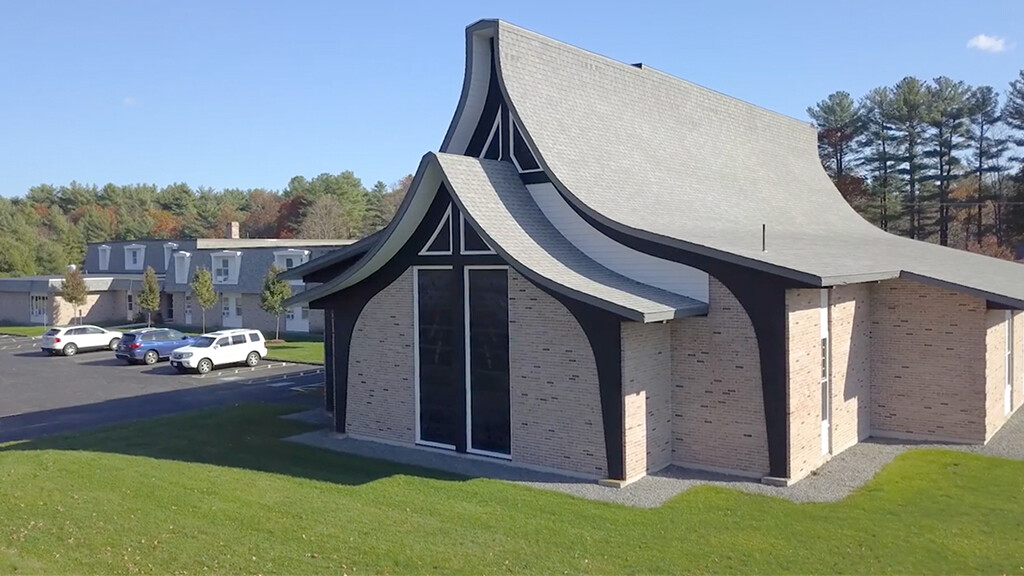
Something Nicer to Say
(6 min read)
Me and my self-talk
Recently, I was telling some friends about a visit to a new brewery that I really did enjoy. And without even thinking about it, I shared some thoughts for how it could have been improved.
As I’m telling the story, my friend said, “Paige, have you ever been to a place that you just liked, with nothing to say about how it could be better?” I laughed and said “Absolutely not! There is always room for improvement!”
But my critical nature doesn’t just extend to experiences. I’m pretty critical of myself, too.
“I am so stupid…” These words came out of my mouth as I struggled to stuff a 7ft Christmas Tree into a 9ft Christmas tree bag. (Trust me: it’s not easier to put a tree into a larger bag; it’s easier to put it in the bag that is the correct size.) My sister, who was watching my struggle, said without missing a beat, “Say two nice things about yourself.”
She might as well have been asking me to fit three trees into one tiny bag.
If You Don’t Have Anything Nice to Say… Think Harder.
There’s a phrase my mom said all the time as my sisters and I were growing up: “If you don’t have anything nice to say, think harder.”
We all figured that she got it from Oprah, or a guest on Oprah. It’s a twist on the age old saying “If you don’t have anything nice to say, don’t say anything at all.”
My sister was giving me a good reminder of something we grew up with: my Mom would make us say two nice things for every mean, harsh, or critical comment we made.
And it worked.
My mom passed away when my sister was in middle school, so it was even sweeter to hear something my Mom spent so much time teaching us coming from her...
While we’re pretty quick to credit my mom’s source as Oprah, it’s actually a biblical principle:
Do not let any unwholesome talk come out of your mouths, but only what is helpful for building others up according to their needs, that it may benefit those who listen.” ~Ephesians 4:29
In some translations, the word “unwholesome” is replaced with words like “harsh,” or “foul” or “abusive.” Words have power as weapons, and sometimes we use them on ourselves.
The Power of Words
Our words have power, no matter if we are talking about ourselves, others, a company, an influencer, Taylor Swift, a coworker - anyone.
We all know this, from when a classmate twisted your name into a cruel joke (mine was often “Turn the Paige” - why did that feel so cruel when I was little?) Or perhaps you overheard co-workers talking badly about your performance, or your outfit. Many people probably can still feel the sting of words that their parents or siblings said to them long ago, or last week.
We use words to convey our thoughts and emotions, good or bad. We know we can use them to make someone feel appreciated and loved. But we also know we can hurt people with them.
You know the difference between someone saying something genuinely nice to you and when someone says something “nice” to you, that they don't mean.
You can’t take back your words. As you read that sentence, I am sure something you said to someone else that you can't ever take back comes to mind. I know there are hurtful things I have said to others, to their face, and I can never take those words back. They have altered the course of friendships,
We can use them to build others up, to instill confidence, and encourage. Or we can use them to hurt others, to tear them down, and pick them apart.
A Self-Proclaimed, World-Renowned Critic of Everything
I am a self-proclaimed world-renowned critic. Of everything. Every restaurant, brewery, or café I have ever been to, every person I have ever met, every bite of food, or game I have ever played.
For any dish I have ever cooked, I ask my sisters or my fiancé, “What are your critiques? Mine are…. More salt, less salt, I should have done x, y, or z different…”
Imagine if I changed my words to “What’s your favorite thing about this?”
I always have a critique. Even if I LOVE something I probably can think of at least one way it could be improved.
When it comes to restaurants, hotels, or coffee shops, maybe it’s all in good fun. But I can often critique people I meet - speakers, pastors, friends, or strangers - in this way too. And often not to their faces, but behind their backs. I can’t even try to argue it’s “constructive” because they aren’t there to hear it.
Remember the Truth
Often as the critical words tumble out of my mouth, I can conjure up the image of my late mother saying to me “If you don’t have anything nice to say, think harder.” But I don’t often follow it up by saying two nice things for every mean critique.
I was recently studying Psalm 42 and twice the author is taunted by those around him, “they say to me all the day long, “Where is your God?”” (42:3b &10b). Both times the author reminds themself, “Hope in God; for I shall again praise him, my salvation and my God.” (from 42:5-6 & 42:11). Negative things are said to this Psalmist, and they combat it by speaking truth and life over themselves and their faith. They remind themselves what is true about their God.
A Cure for the Critical Spirit
According to the Bible, humans are made in the image of God – a fact so important to the author of Genesis that it’s said twice for emphasis:
So God created mankind in his own image,
in the image of God he created them;
~Genesis 1:27a
Speaking unkindly towards any human being critical of them, or being hateful or mean, is one of the worst offenses you can make against another image-bearer. You’re conveying that they don’t have value and aren’t important.
That is the complete opposite of what God says about us.
With that in mind, “If you don’t have anything nice to say, think harder” becomes even more important.
Every person is made in the image of God, so it isn’t enough that when you can’t say something nice, don’t say anything at all – we are mandated by God to think harder. Find the qualities they have that reflect the image of God – or at least something positive about them. Start with one, but aim for two, and see how your perspective changes.
When you start doing this, you become less critical in general. I promise. During seasons of my life where I am better about practicing this, I notice myself becoming significantly less critical.
Remembering Our Own Worth
It’s not just thinking about compliments for people – it’s about realizing their inherent worth as a human being – and retraining your mind for those to be your first thoughts, not your forced thoughts.
When we speak uplifting things over ourselves and over others, we are building up everyone around us, “that it may benefit those who listen” (Ephesians 4:29b). But it also matters how we talk to ourselves.
Our self-talk, that dialogue that runs in your mind through the day, is crucial in shaping your self-image, confidence, and mental well-being. When you constantly criticize yourself and others, you reinforce negative beliefs. But positive self-talk not only reminds you that you are made in the image of God, but can also boost your self-esteem and resilience.
So, when you don’t have anything nice to say - think harder. Speak kinder and recognize the inherent worth in every person you encounter - including yourself.
In doing so, you might just find that the cure for a critical nature is replacing it with a positive and appreciative perspective on life.
Photo by Олег Мороз on Unsplash






